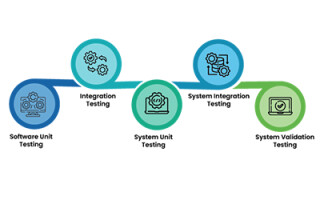Dev Kit Weekly: ADLINK I-Pi Industrial IoT Prototyping Platform
July 24, 2020
Video
Enter Raffle!
While “maker” boards like Arduino and Raspberry Pi are great in part because of their ultra-low cost, they are, well, cheap. And that’s not a problem in some contexts, but if you’re a professional engineer trying to prototype a system for an industrial or commercial use case, let’s say, the inexpensive components on those boards don’t provide a sufficient analog to what you’d actually deploy in the field.
That’s where the I-Pi comes in. The I-Pi is a SMARC Computer-on-Module stack that consists of ADLINK’s LEC-PX30 processor module, an off-the-shelf SMARC carrier board, and even a “Hardware Attached Top” that can convert DSI signals to HDMI. The processor module connects to the carrier via the SMARC 2.1 MXM 3.0 connector, and the HAT plugs in via a 40-pin expansion header.
Now, usually you wouldn’t use a COM architecture for rapid prototyping because they rely on application-specific carrier boards, which can be time consuming to develop and you usually only want to spend time on when you’re optimizing your final COM-based system design. However, the I-Pi carrier is a simple-yet-general purpose offering that gives prototypers the flexibility to evaluate a range of signals like the two 10/100 Mbps LANs, four USB 2.0 ports and one USB 2.0 OTG port, four-lane MIPI DSI, two-lane MIPI CSI, and serial interfaces like CAN, SPI, UART, and I2C and so on. Of course all of this can be pared down later if necessary, but who cares right now? At this point we’re just trying to get going!
Software is usually the breaking point with regards to that hardware portability we just talked about, so ADLINK has integrated the MRAA software layer into every SMARC module it produces. The MRAA layer is more or less a hardware abstraction layer that was originally developed by intel that allows massive portability so that programming for a Rockchip device or an NXP IMX8 or whatever other SMARC module you choose is essentially the same, and there is little to now rework when porting your code from one implementation to the other. It even allows you to reuse code from Raspberry Pi and Arduino without any modifications.
You can find out more information and order the I-Pi online from ipi.wiki. Or, five of you who fill out this week’s raffle form will win one for free. And yes, we’ll pay the shipping. To winners anywhere. In the world.
Fill out the form below for your chance to win.
Good luck to all you industrial engineers out there who have been looking for fast system prototyping solutions. We'll see you next week on Dev Kit Weekly.




